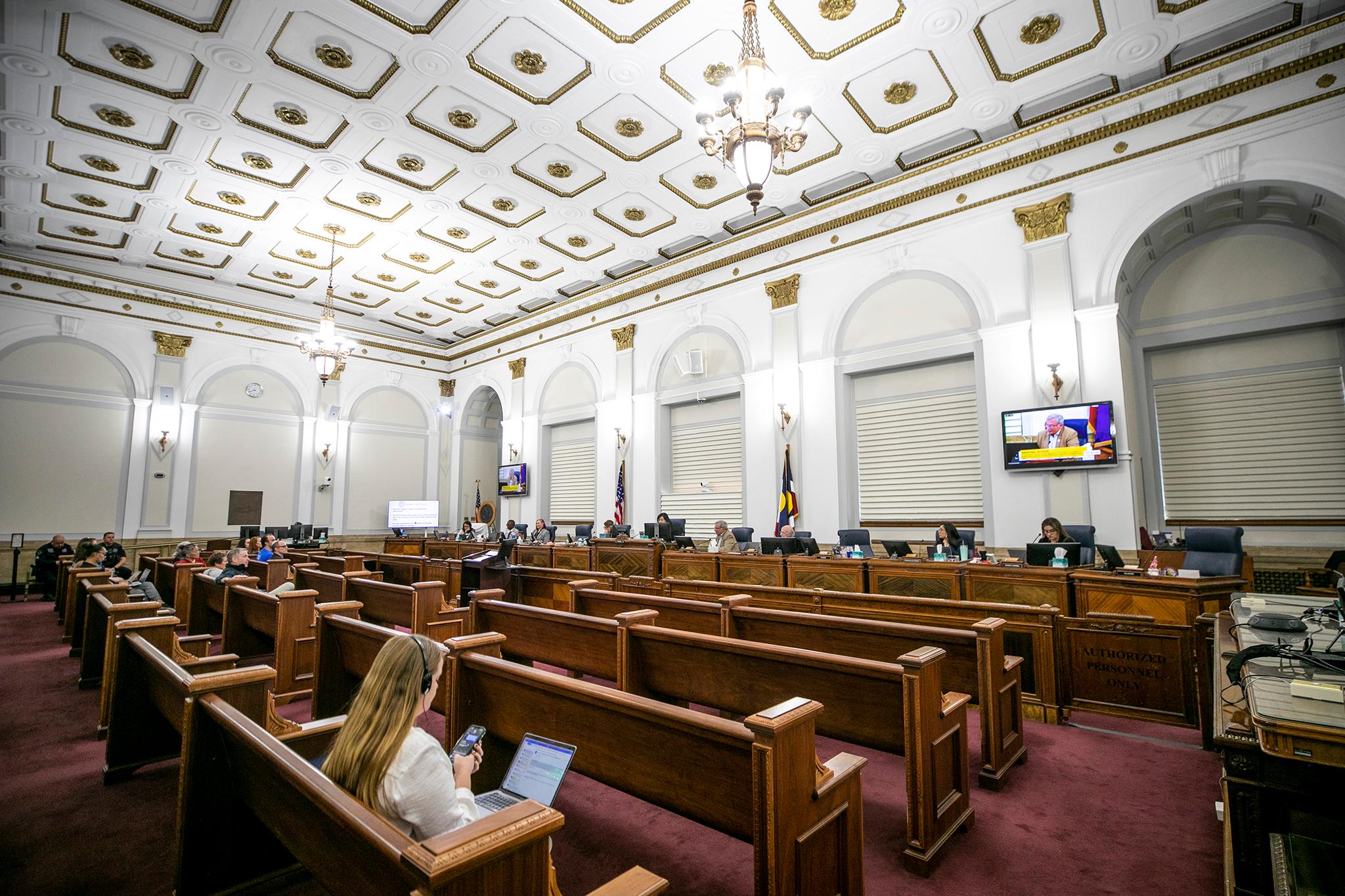Denver workers might get stronger protections from wage theft.
City Council is considering two pieces of legislation: one that would grant the auditor’s office subpoena power while investigating complaints, and another proposed bill would give subpoena power to the office when conducting performance audits of city agencies and contractors.
The potential bill comes after City Council passed stronger protections for workers in early 2023. The auditor’s office recovered a record amount of money for workers that year, citing the new bills.
The possible addition of subpoena power would be a win for labor leaders and city staff who have been asking for the ability for years.
Why does subpoena power matter?
Councilmember Sarah Parady said subpoena power is important in investigating wage theft because it would ensure city staff can gain access to payroll records, which can help investigators find other victims of wage theft beyond a single complainant.
While the office cannot jump straight to a subpoena, investigators could use it as a tool if a company was unresponsive to multiple requests after 40 days.
“Many times, if an employer is not paying one of them the employer is not paying all of them,” Parady said in a presentation to City Council’s Budget and Policy Committee Monday, alongside Councilmembers Amanda Sawyer and Kevin Flynn.
Denver Labor executive director Matthew Fritz-Mauer said that several other governmental agencies that investigate wage theft have subpoena power, as do other government groups like City Council, as well as private attorneys.
Without it, the auditor’s office has to jump straight to fines, which some companies will pay in lieu of cooperating with the office.
“Every time it slows down the process and sometimes we never get the information that we want,” he said. “One act of wage theft is a big red flag for a systemic problem.”
The potential legislation would also appoint a neutral third-party mediator to negotiate between the auditor’s office and a business if a company wanted to dispute a request for information, instead of having to go through the courts.
Council sponsors said that change was added at the request of local stakeholders who worried disagreeing with a subpoena would become costly and time-consuming by going through the legal system.
Performance audits have a complicated history
While Councilmembers showed broad support for subpoena power to prevent wage theft, the proposal involving performance audits was more complex
That potential bill would cover things like audits of airport operations, city police or encampment sweeps. But it has a complicated history.
In 2021, City Council passed a bill giving the office subpoena power, but Auditor Tim O’Brien sued the city over an amendment that allowed departments to request on-site access to documents, added over concerns the power was too broad.
Rather than litigate a potentially costly suit, City Council repealed the powers entirely.
Sawyer said stronger powers to audit city agencies and contractors is important because they receive tax dollars.
O’Brien said that the change would not expand the auditor’s powers but provide structure when agencies want to dispute requested documents, which is currently negotiated between investigators and agency staff.
Like with wage theft, the proposed changes would add a third-party neutral mediator.
“What we’re asking for is not access to any more information than we already think we should have access to, but really the ability to get that information,” he said.
But Flynn said he received calls from two former members of the Auditor’s Office saying they opposed the move because of the potential for overreach, similar to the concerns in 2021. He did not name the two former staff members, and O’Brien said he did not know the impetus behind the calls.
The Denver Chamber of Commerce cautioned about overreach in a statement:
“We have no objection to allowing for subpoena power on wage theft issues, and if the proposal were limited to just that component, I don’t think we would have any objection to it,” said Carly West, Vice President of Government Affairs for the Chamber. “But just as we had concerns when the idea was proposed in 2021, we have concerns about the broad proposal – questions around oversight, protection of sensitive data, unintended impact to the city’s ability to attract partners for and develop public private partnerships, and the overall broad expansion of powers with ability to subpoena for performance audits. We hope that the approach will be narrowed to focus solely on wage theft.”
Other Councilmembers expressed concerns that not enough nonprofits and city contractors were consulted as stakeholders on the potential legislation.
“I’m in support of it for wage claims, I am not in support of it for performance audits,” said Councilmember Stacie Gilmore, who requested more stakeholder input.
The bills will head to an initial vote in Council committee on Tuesday, April 9.













